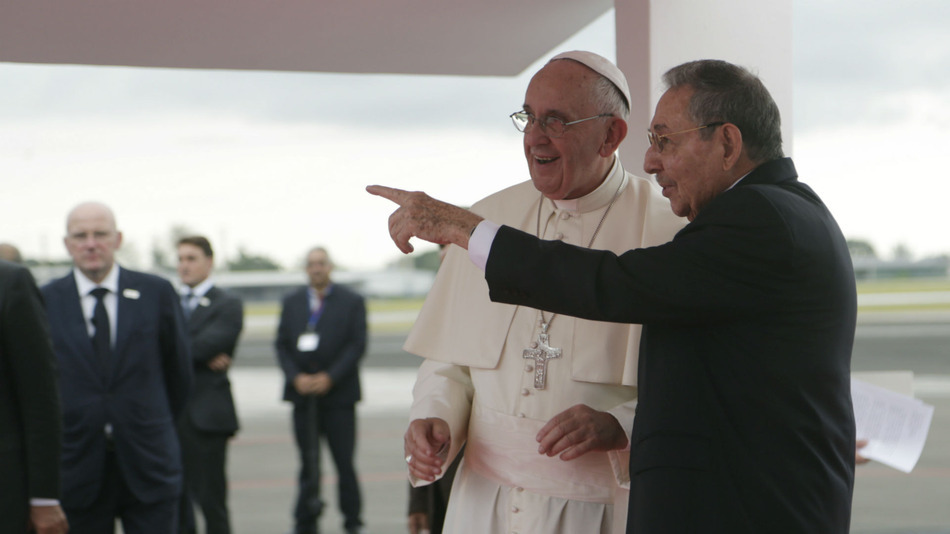Pope Francis became arguably the most iconic religious leader in the world two years ago when he was elected, yet he has since made international headlines by being one of the most prominent, bold and multifaceted politicians on the planet.
He has pleaded for peace between government troops and insurgents in Colombia, helped thaw the long-frozen relationship between the United States and Cuba and demanded that European nations accept more refugees and migrants fleeing the Middle East and North Africa. He has scolded leaders across the globe for their limited efforts to combat climate change, something he is likely to bring up Friday in New York City during a speech to the United Nations General Assembly.
"Throughout world history, religious prophets have creatively navigated tense situations to advance peace and justice," Christopher Hale wrote for Time in May 2014. "Within the past century, Gandhi, Martin Luther King and St. John Paul II showed us that religious witness can win a war without raising a hand."
Francis is no stranger to the varied politics of war.
Days before he first set foot on U.S. soil Tuesday, the pope was pleading for the two sides fighting Colombia's decadeslong civil war to come to a peace arrangement. He did so from Cuba, the nation that has brokered talks between the government and left-wing rebels for two years.
“We do not have the right to allow ourselves yet another failure," the pope said Sept. 20. “Thus may the long night of pain and violence, with the support of all Colombians, become an unending day of concord, justice, fraternity and love."
And it was through Cuba and the U.S. that the pope waded into the old politics of the Cold War that have left diplomatic relations between those nations largely frozen over the last half century.
Cuban and American officials acknowledged that Francis had reached out to them via letters, asking the two nations to renew their relationship. In December, U.S. President Barack Obama thanked Francis for his involvement as he announced America would soon reestablish an embassy in Cuba's capital, Havana.
"In particular, I want to thank His Holiness Pope Francis, whose moral example shows us the importance of pursuing the world as it should be, rather than simply settling for the world as it is," Obama said in prepared remarks when he announced renewed relations in December.
Francis got involved in yet another kind of war politics earlier this month, when he asked religious communities across Europe to offer a home to migrants and refugees fleeing war-torn parts of the Middle East and North Africa. His call came as hundreds of thousands of refugees and migrants are still coming to Europe via land and boat, and as European Union nations debate how many people each nation should accept.
Yet the pope's primary international political fight may be in an entirely different arena—climate change.
In June, Francis released a 180-page official letter (called an encyclical) in which he described climate change as a manmade threat to humanity. He then lambasted world leaders for doing so little to combat it, writing that "the failure of global summits on the environment make it plain that our politics are subject to technology and finance."
Francis stayed on message Wednesday during a speech outside the White House.
"It seems clear to me also that climate change is a problem which can no longer be left to a future generation," he said. "When it comes to the care of our common home, we are living at a critical moment of history.”
Many expect he'll reiterate that point in a speech to Congress on Thursday, and again when he speaks before the UNGA in New York City on Friday.
Fuente: mashable.com
